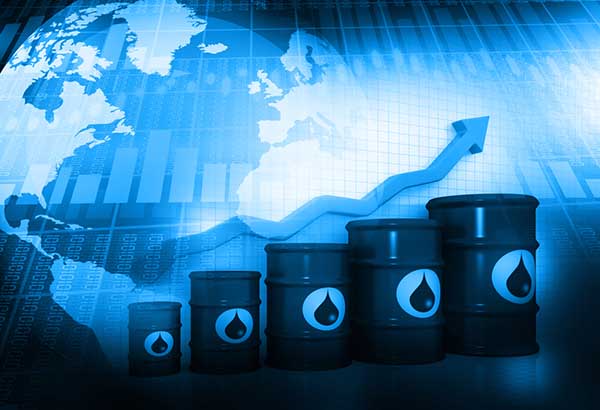

This training course will examine:
. A petroleum marketing overview, including introduction of key participants, infrastructures and the various different forms
of marketing in the petroleum sector
.The issues and challenges associated with marketing petroleum products
.Petroleum marketing trends – how petroleum products are changing, and how marketers can respond
. Worldwide demand and pricing for petroleum products – how do organisations like OPEC affect production and price
.Where profits are made in the supply chain, and how these can be driven higher
. Devising and implementing a successful sector-specific marketing strategy
.The role and value of branding within the petroleum sector
By the end of this CDGA training course, participants will learn to:
Devise and implement a fully-featured petroleum sector specific marketing strategy
Understand the economic drivers affecting the international petroleum market
Use a portfolio of marketing tools to deliver a cogent message
Be familiar with how the media works
Gain a competitive edge in the fast-evolving petroleum, oil and gas marketplace
The training course is designed to benefit existing petroleum industry marketing department personnel, directors and other
staff within the sector. In particular, the following will find it invaluable:
Those new to the petroleum industry
Existing personnel in the sector, who are migrating to a marketing related function
Marketing staff looking to gain a greater insight into the sector
Staff wishing to understand how the economics of the sector affect their marketing function
Day One: The Petroleum Sector – A Marketing Overview
The basics of marketing petroleum products, including market dynamics and distribution channels
Petroleum marketing overview – the key participants and infrastructures
Commonly-marketed products and the issues & challenges affecting them
Who to market to, defining your message, customer segments and their needs & expectations
The role of effective branding within the petroleum sector
Key business processes involved in marketing petroleum products to different customers and stakeholders
Day Two: Retail and Wholesale Marketing in the Petroleum Sector
How retailers market various petroleum products to their customers
The AIDA model in relation to the petroleum sector
Refining and highlighting your key brand differentiators
How segmentation and positioning are critical to petroleum sector marketing success
Wholesale marketing – how companies market in bulk including to distributors and re-sellers
Analysis of transportation, B2B & B2C, domestic, industrial & commercial and multinational segments
Product competition in the petroleum marketplace
Day Three: Matching Petroleum Sector Marketing to Micro and Macro-Economics
The macroeconomic environment – why it matters to the petroleum sector
Worldwide demand and pricing for petroleum products
How to analyse the market and evaluate the impact of trends on future development
Conducting a PESTEL analysis – the how and why of your marketplace
How crude oil and petroleum markets are established on global and regional levels
How organisations like OPEC affect petroleum production markets worldwide
Marginal utility – where profits are made in the sector
Product and service differentiation
Day Four: The Rise of Digital Marketing in the Petroleum Sector
Digital Marketing – a definition and petroleum sector specific explanation
How to use digital and traditional in an integrated petroleum sector campaign
Integrating your various social media platforms to maximise reach across the petroleum sector
Dealing with customer, supplier and other industry stakeholder complaints on social media
Increasing views, likes and clicks across various digital platforms
When to advertise on social media – how to reach key oil, gas and petroleum accounts via new channels
Using e-mail techniques to generate industry relevant click throughs
Measuring digital impact and footprint
Developing a full digital strategy in the petroleum sector
Day Five: Putting Your Plan into Practice
What to do if things go wrong – how to handle a crisis within the petroleum sector
Liaising with journalists and thought leaders
Planning ahead – implementing your oil & gas-specific strategy
Broadcast media versus printed versus online – integrating your coverage
Demonstrating value and ROI within the petroleum sector
Internal communications – the benefit of telling your colleagues
| Code | Date | Venue | Fees | Register |
|---|---|---|---|---|
| PE207-02 | 12-04-2026 | Manama | USD 5450 | |
| PE207-03 | 12-07-2026 | Dubai | USD 5450 | |
| PE207-04 | 11-10-2026 | Riyadh | USD 5450 |
Providing services with a high quality that are satisfying the requirements
Appling the specifications and legalizations to ensure the quality of service.
Best utilization of resources for continually improving the business activities.
CDGA keen to selects highly technical instructors based on professional field experience
Since CDGA was established, it considered a training partner for world class oil & gas institution
3012, Block 3, 30 Euro Business Park, Little Island, Co. Cork, T45 V220, Ireland
Mon to Fri 09:00 AM to 06:00 PM
Contact Us anytime!
Request Info